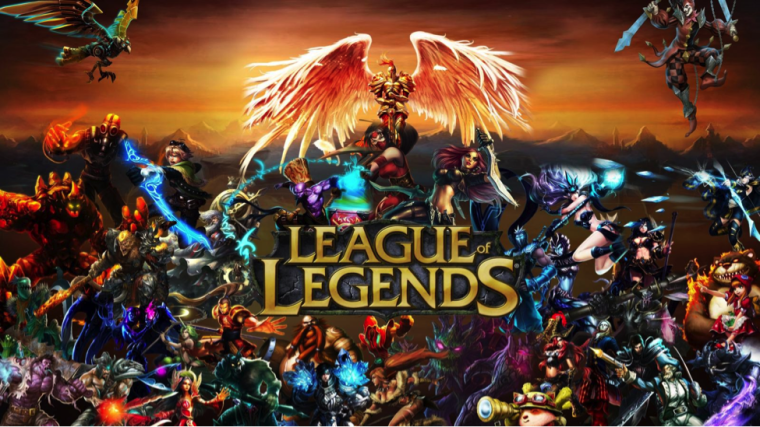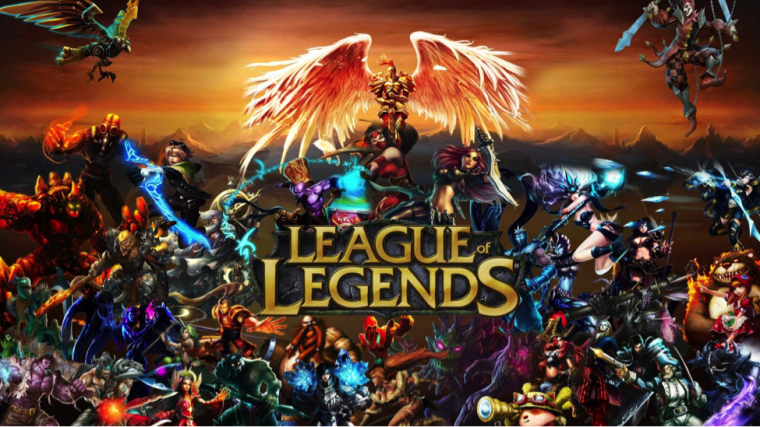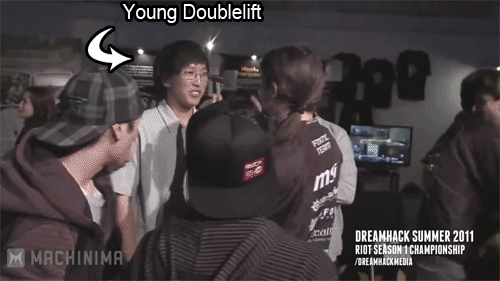Yiliang Peng’s day begins at 9 a.m. He eats breakfast, gets dressed, goes to the gym and then comes home to play a video game for 12 to 14 hours.
Peng is known as “Doublelift,” after his favorite card trick, to the League of Legends community. He’s also known as one of the game’s best players worldwide.
He is the face of the professional Counter Logic Gaming team. He’s the team’s marksman, or “attack damage carry,” one of two positions charged with dealing most of the damage to other teams. His favorite champion is Vayne, a high-risk but high-damage huntress who uses a small crossbow.
Peng broadcasts a live stream of himself while he plays, giving advice and tips to other players via online chat. The viewer count for this stream reads roughly 20,000 on a typical night.
Behind him are the other CLG players. They live together in a single house, mainly residing in a room filled with powerful gaming PCs supplied by sponsors.
Peng didn’t start playing League to be the best; he just wanted to keep up with his friends in the gaming community.
“I hated the game, honestly, at first, but I didn’t want to lose my closest online friends — they were the people I talked to the most.” he said.
He started the game young, placing fourth in the 2011 DreamHack tournament at 17 years old. That was when he realized he could make money by gaming.

Doublelift
Peng was successful in the League of Legends scene despite being kicked out of his parents’ house, according to a Reddit post titled, “Hi I’m Doublelift, formerly of team EG, and today I became homeless.”
After getting offers from many online fans in the Irvine, California, area to live with them, Peng accepted one such offer from Travis Gafford.
“I recognized his name and it just so turned out that he lived nearby, so I was able to offer him a place to stay,” said Gafford.
Their relationship was mutually beneficial. Gafford, then an aspiring eSports journalist, was happy to have one of the most prominent gamers in the world right down the hall. Peng was happy to have a roof over his head.
“Neither of us would be where we are today without the other,” said Gafford. “He helped shape League by being a very early figure in the scene that people could get interest in because they could decide whether they liked him or not.”
Peng is known for his strong attack/damage/carry skills and for his mouth. He used to call other players and teams “trash,” though this is now seen as a running gag. Subscribers to his twitch.tv channel now earn trashcans as rewards for watching.
“When I first got on this big public platform and stuff, people really scrutinized what I was saying, I didn’t really have any social skills. I was just really blunt,” Peng said. “The art of subtlety or saying things in a passive way nobody really taught me that.”
He created a brand for himself. Doublelift wasn’t just the CLG marksman; he was an icon in the LCS. However, as the game evolved and Peng was no longer marked as the best player in the world, his feelings changed.
“It only dawned on me later that … there will be a time where I’m not that good.” Peng said. “If I continue to trash talk everyone, making myself look really arrogant and putting others down, then people are going to remember that and once I’m not as good, they’re going to use it against me.”
Ending the 2014 LCS Summer Split with a kill/death average of 4.1, meaning he killed 4.1 people for every death he had, Peng failed to make it in the top five players based on KDA. He did, however, have the second-highest gold-per-minute average, 405.
Peng still proved to be a fan favorite, though, when he was voted to represent North America at the 2014 All-Star event in Paris, in which people from around the world form mega teams and face off against one another. Many gamers look up to him, and not just for his gaming skills.
“He transformed into a guy who’s good at socializing and doesn’t care about what people think of him,” League of Legends at College Park club member John Park said. “It kind of inspired me to socialize more. It took a really long time, but he basically gave me light to believe that anyone can change.”
Throughout the ups and downs of the gaming industry, Peng is happy he can have a positive effect on people. He said he tries to keep things in perspective.
“I get paid a lot of money to play video games,” he said. “[I] get to do what I love for a living. That’s the greatest thing ever.”





